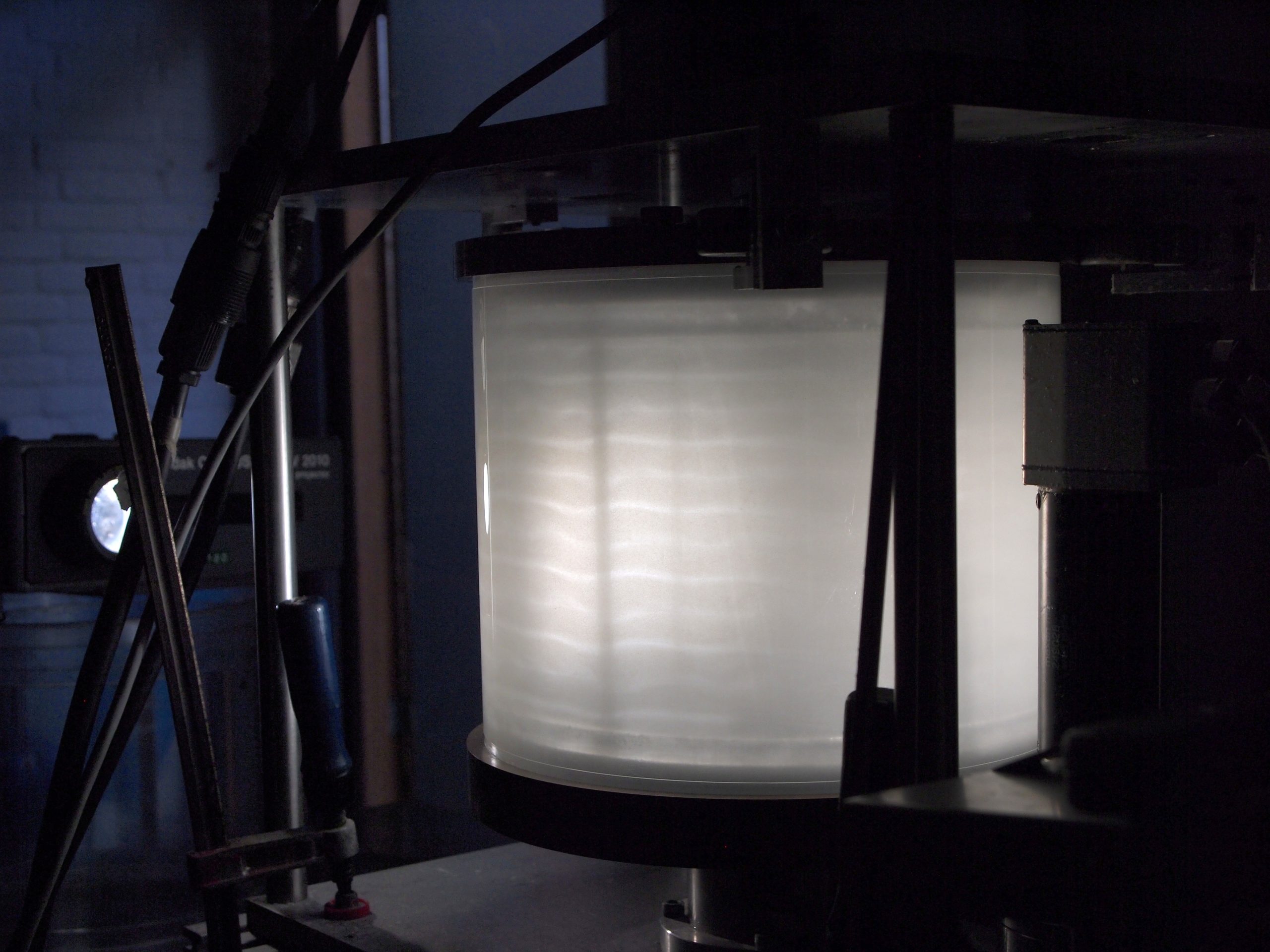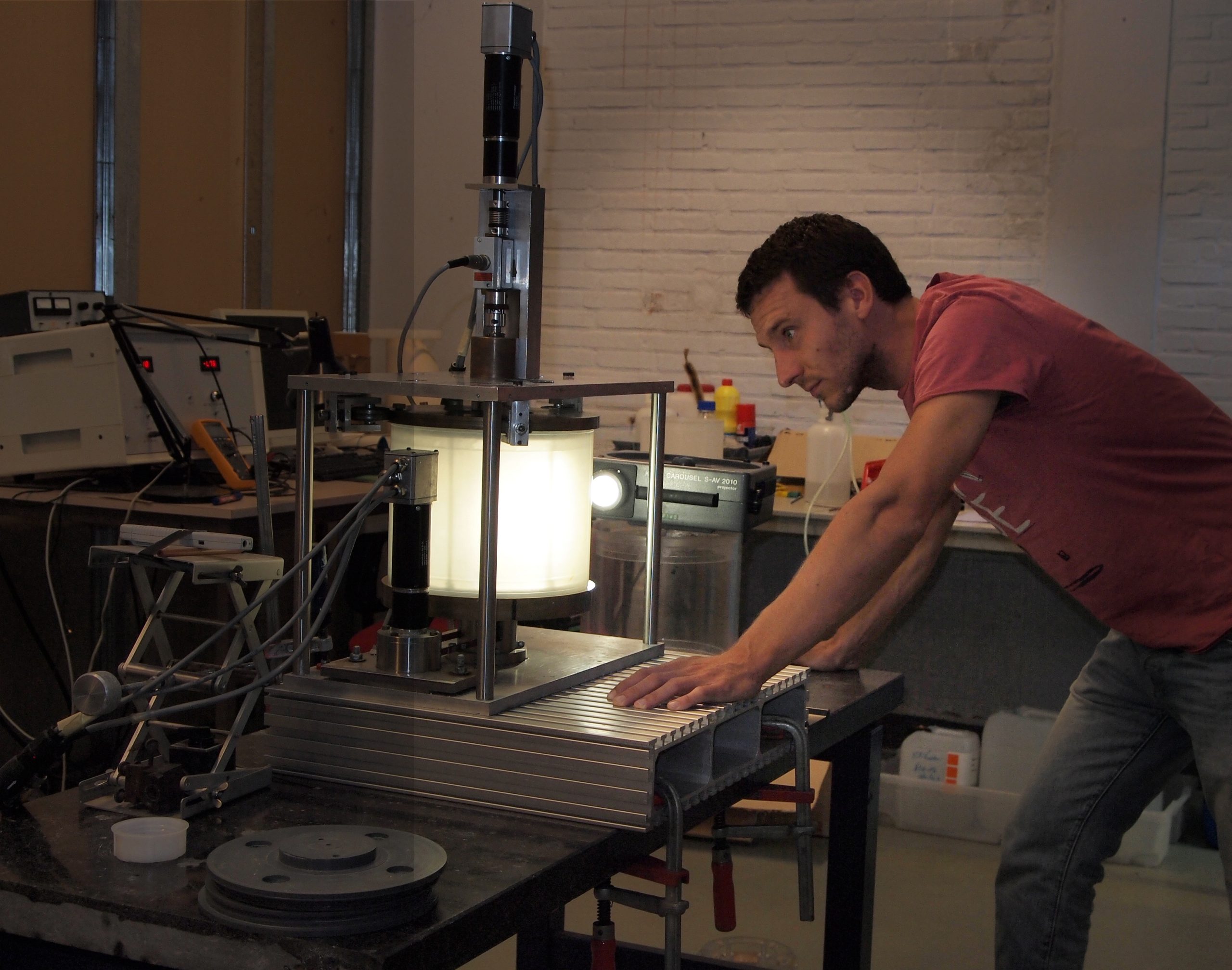In TU’s fluid mechanics lab former top-rower Arnoud Greidanus is looking for ways to reduce drag in boats and pipes. “Nature often has solved the problems that we’re just becoming aware of.”
Halfway through his PhD research, Greidanus is about to publish a paper on his current results: a five per cent reduction in drag for speeds between 4 and 6 meters/second – the typical speed of rowing boats.
For the uninitiated, 5 per cent may seem as a fraction less friction, but it is in fact quite substantial says Greidanus: “Imagine reducing the friction of freighters by one per cent and the savings that it entails in fuel costs and exhaust emissions. Or the industrial impact of reduction of drag in pipes that demand high pressures to pump the liquid through. Ten per cent drag reduction would be phenomenal, but five is already quite significant.”
Sharkskin patterns have been known to reduce drag since scientists at NASA’s Langley Research researched the phenomenon (in air) in the 1980’s. It took a while, but both Airbus and Boeing are now either preparing or conducting tests on the fuel-saving effect of sharkskin structures on the fuselages.
Michael Phelps and other competitive swimmers demonstrated the reduction of flow resistance of sharksin swimsuits at the 2004 Olympic Games, where he won eight medals. Five years later, the world’s swimming body FINA banned the shark suit. Mostly because it worked too well.
“You can feel the structure”, says Greidanus as he brushes his hand over a plastic foil with parallel groves – the artificial imitation of the dented structures on a shark’s skin. At eight groves per millimetre, the structure is too fine to feel in detail but you do feel a different friction depending on the direction you move your fingers. By channelling the flow in the main direction, the micro channels reduce the turbulence.


Counterflow
The sharkskin foil is one of the materials he measured the friction of in a flow between two concentric cylinders spinning in opposite direction with one centimetre water between them. This Couette-Taylor set-up is the current research standard for measuring the drag of a flow along a surface.
He measured the drag for several products now in use for rowing and sailing boats for speeds varying from 0 up to 15 meters per second. The sharkskin foil came out best with a drag reduction up to 4,8 per cent compared to an untreated smooth surface (measured with 0,6 per cent accuracy).
Greidanus points out that the friction has a ‘dip’ at an optimum speed. This means the optimal spacing between the groves will vary for different boats. It will be slightly bigger than 125 micrometres in a men’s eight and smaller for a women’s four.
From his rowing days, Greidanus remembers teams washing, polishing and waxing the surface of their boats for optimal smoothness. There was one exception: a successful sculler from New Zealand, called Mahé Drysdale, who was seen sanding down his boat until it looked matte. Looking back, Greidanus thinks the sanding may have created a sharkskin effect. Apart from a thorough cleaning of the surface of course.
For the remainder of his research, not sharks but dolphins are his study-models. “Often, when we stumble over a problem, nature has already solved it”, Greidanus notices. “People have noticed that dolphins can swim much faster than we could give them credit for given their muscles and circulation. But still, they do. So, what is their secret?”
The technical term is ‘compliant coating’ by which researchers mean a rubbery coating with soft but stiff feel. The idea is that such a coating, when properly tuned, will dampen the turbulence along the surface and thus reduce drag. Although it has not yet been developed, Greidanus expects the effect to be speed-dependent and to result in minimal drag only over a specific speed interval.
Prof. Jerry Westerweel (3mE) is Greidanus’ PhD supervisor. Greidanus graduated in chemical engineering in 2009 before embarking in a PhD research in fluid mechanics. His daily supervisor is Dr René Delfos. Both he and Westerweel co-author the upcoming article.



Comments are closed.